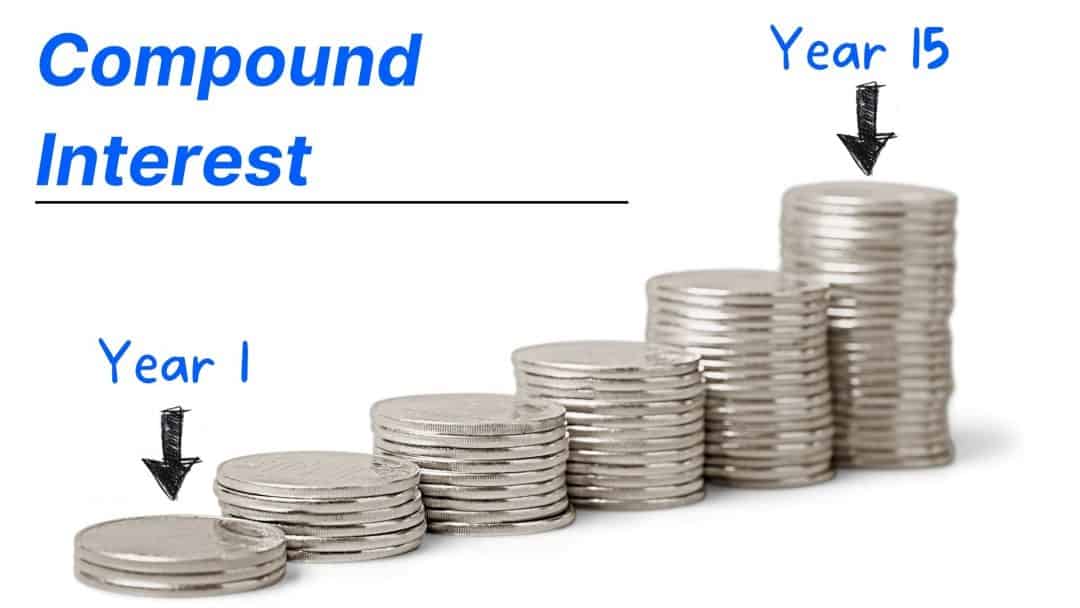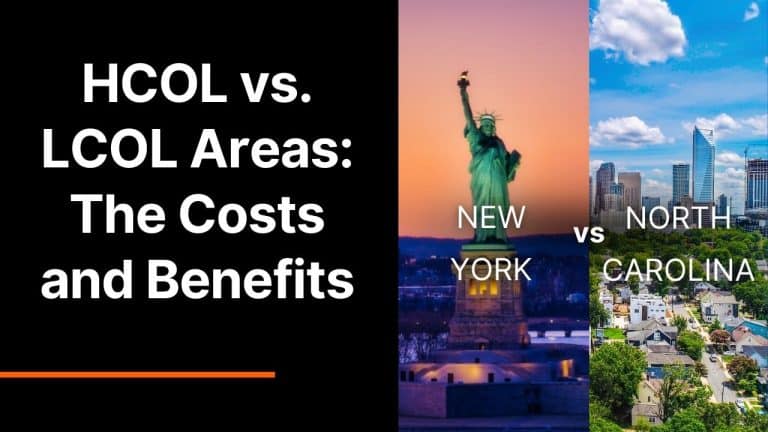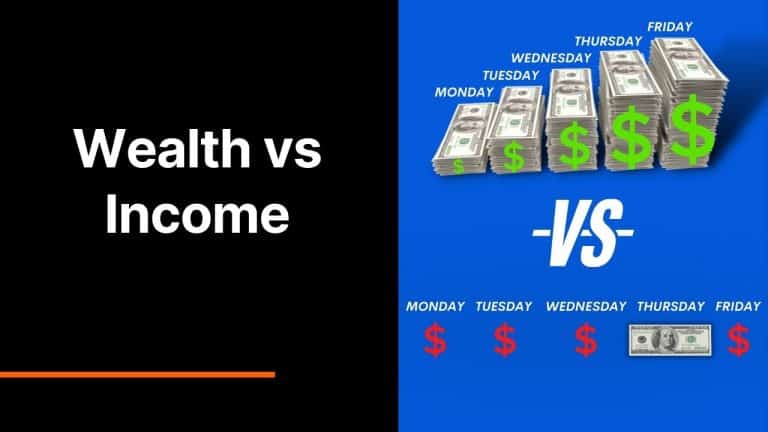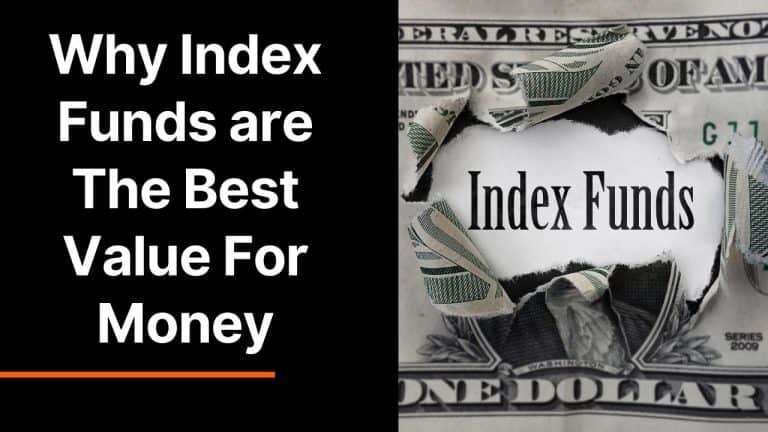Can’t Wait To Retire? Here’s How to Retire Early (The EASY Way)
I don’t know about you, but I can’t wait to retire early!
Having financial freedom means having the ability to live your life without worrying about money.
It means being able to cover your basic monthly
While financial freedom may seem like a distant and unreachable dream, it is possible.
To achieve your freedom, you need to be willing to make changes in your life and create a plan.
It all comes down to math, and math never lies.
So, let’s go over some simple steps you can take to achieve financial freedom.
Figure Out How Much You’ll Need: Your Financial Independence Number
The road to early retirement begins with your “FIRE” (Financial Independence Retire Early) number — the amount of money you need to save to continue living the life you want.
The FIRE movement is the idea everyone should become financially independent as soon as possible.
To determine your number, we need to determine how much early retirement will cost.
Then, determine your withdrawal rate. Or how much you’ll pull each year from your
And finally, decide how much you can safely withdraw from your
Use The “4% Rule”
The rule states you can withdraw 4% of your savings during your first year of retirement and increase this amount to account for future cost-of-living increases.
Then you don’t have to worry about running out of cash. The rule and math behind it aren’t 100% perfect.
But it’s a good starting point, and history is on its side.
Adjust Based Upon How Fast and Early You Want to Retire
The 4% rule is great if you can’t wait to retire in your 60s. But, if you’re retiring early, you should go with a more conservative percentage.
Like 3.5%.
And if you’re retiring early in your 30s or 40s, you should take an even more conservative approach and drop it down to 3%.
Calculating the 4% rule is straightforward. Take your annual retirement
So, if you plan to live on $50,000 a year in retirement with a 4% withdrawal rate, you’d need to save $1.25 million — that’s your FIRE number.
We got this number by multiplying $50,000 x 25 to get $1.25 million.
You can explore and tweak this number and all the variables with an online retirement calculator like the ones on Bankrate.
Can’t Wait to Retire Early? Focus on Your Retirement Savings Rate
If you want to retire early, it’s going to take a lot of sacrifices.
Sacrificing doesn’t mean you won’t enjoy life ever again. You can spend time travelling, eating out and enjoying the things you love most.
But you have to live within your means and increase your savings rate. Your savings rate is the percentage of your
The higher your savings rate, the more money you’ll have to live on in retirement, and you’ll also get there faster.
Several factors can affect your savings rate, including your
To retire comfortably, you need to have a high savings rate.
It would help if you didn’t spend everything you make either because then you’ll never be able to invest.
Ways You Can Increase Your Savings Rate:
- Contribute more to your 401(k) or IRA.
- Regularly invest in a diversified portfolio of stocks and bonds.
- Examine your monthly spending habits and ensure they align with your goals and values.
- Increase your
income by working overtime or getting a raise.
The higher your savings rate, the more you’ll have available for emergencies, your retirement goal, or to invest.
Though, getting to a high savings rate isn’t easy. There are a lot of societal pressures, bad spending habits, debt, and even lifestyle inflation.
And only a few a number of the ways you can increase your savings rate. Most people who want to know how to retire early live well below their means and save more than 1/2 of their
The earlier you start, the better because the number one way to grow your money is to give it more time.
Compound interest is powerful when time is on your side
And no matter how much money you make, decreasing your spending will speed up how fast you can retire.
Make Compound Interest Your Friend
Compounding interest is your best friend when it comes to saving for life in retirement.
That’s because compound interest allows you to earn interest on your original investment and on the interest accumulated over time.
As a result, your money can grow at an exponential rate.
And the sooner you start

Unfortunately, many fail to take advantage of this powerful tool and fall short in early retirement planning.
So, if you want to retire early, take advantage of compound interest by
Failing to take advantage of compound interest is one of THE biggest reasons many people don’t have any
Invest More If You Can’t Wait to Retire Early
You can invest in stocks, bonds, real estate, or any other vehicle.
There are many ways to boost savings rates, but experts say the best way to increase your savings is to contribute more to your employer-sponsored plan.
According to Bankrate’s Retirement Savings Rate Report, the average American worker contributes just 5.4% of their salary towards retirement.
Contributing this much isn’t enough if you want to retire early.
Saving and
You need to contribute 20% or more of your salary to have any chance of retiring before you reach the age of 65. To invest this much, you’ll need to cut back where possible and make intentional choices about where your money is going.
Here Are a Few Ways You Can Cut Back:
- Live at home or with roommates longer than you’d like to save on housing costs.
- Cook instead of order out.
- Budget significant purchases and vacations.

The main thing is to eliminate where you are spending, then save and invest the rest. Talk to a fiduciary financial advisor to review your options if you need to.
Follow The Simple Path to Wealth
Investing should be boring.
Choose low-cost index funds like VTSAX that invest in broad market indices or the S&P 500.
These funds offer diversification, long-term growth, and stability. All of which can help your
You don’t want your early retirement portfolio going up and down every day.
You should instead aim for 7% to 10% annual returns on your
Listening to the audio version is my favorite way to learn more about index fund
You can also find a local fiduciary financial advisor and discuss your investment strategy.
However, I believe if you’re willing to put in the time, you’re more than capable of managing your own money and don’t need a certified financial planner.
Max Out Your Tax-Advantaged Retirement Accounts
Tax-advantaged retirement accounts offer significant benefits to account holders.
Account holders can enjoy significant savings by delaying taxes or paying them now.
Retirement accounts like individual retirement accounts (IRAs) and 401(k)s through your employer are a great way to do this.
By
Many tax-advantaged retirement accounts are available, so choosing the one that best suits your needs is important.
However, all tax-advantaged accounts offer the same basic benefit: the opportunity to save money on your taxes.
For example, if you put $10,000 into a Roth IRA and never touch it, you’ll never have to pay taxes on the earnings. You contributed after-tax dollars with a Roth IRA, so you’ve already paid taxes on the money.
With a Traditional IRA, you defer paying taxes on the money you put in.
But you’ll pay taxes when you withdraw the money in retirement. The bottom line is your tax burden goes down with any account of this type through a tax deduction.
The tax deduction is a huge advantage when saving for retirement, so max out your accounts.
Then Dump as Much as You Can Into a Brokerage Account
If you’ve maxed out your retirement accounts, you’re probably doing a great job personal finance-wise and are on track to retire early.
But don’t stop there!
A brokerage account is another great way to invest if you can’t wait to retire. Plus, there are many benefits to having a brokerage account.
For one, you can invest in a wide variety of assets.
The diversification provided by this investment vehicle can help you maximize earnings and protect your savings from market volatility. Brokerage accounts also offer flexibility.
You can withdraw money at any time, without penalty, which makes them an excellent option for emergency savings.
So, consider opening up a brokerage account if you haven’t done so already.
A financial advisor at one of the many investment firms can walk you through opening one of the many investment accounts they provide.
Then when you have enough to live on each year and pay for your lifestyle in retirement – your retirement
Don’t Forget About Health Insurance In Early Retirement
Early retirement isn’t just about money anymore.
The early retirement age for Social Security benefits isn’t until 62. Then Medicare doesn’t kick in until age 65. And while Medicare does cover some medical
You’ll want to ensure your health care costs, long-term care insurance, and life insurance are all set.
- A health insurance plan is essential for anyone who can’t wait to retire early, it helps cover the costs of unexpected medical bills.
- Long-term care insurance is also a wise investment, as it will help pay for assisted living or nursing home living
expenses . - Life insurance, even though no one likes to think about it, can provide peace of mind in case of an untimely death.
Considering these factors, you can guarantee you’re ready for anything your early retirement lifestyle will throw your way.

Frequently Asked Questions on How to Retire Early
What is The Healthiest Age to Retire?
41-45 years old is the best age to retire because you’ll still have many years of good health ahead of you, and your kids will likely be more independent by then. Plus, you’ll be able to enjoy your life without having to worry about money and still have plenty of time to do things you want.
Is There a Downside to Retiring Early?
Yes, there is a downside. You may find you’re no longer as engaged in life as you were when you were working. You may also miss the social interaction that comes with having a job. Another downside is you may have less money to live on versus if you continue working.
Do Early Retirees Live Longer
Possibly, retirement allows early retirees time to focus on their health and wellbeing. This extra time will enable you to exercise, eat better, and do more things you enjoy. Also, retirement can be a very stress-relieving event. Studies have shown chronic stress can take a severe toll on our health.
What Salary Do I Need to Retire Early?
You don’t need a specific salary – you need to save up a certain amount. Once you save 25x your estimated annual
Do Retired People Pay Taxes?
Yes, retired people are subject to taxation on their annual






